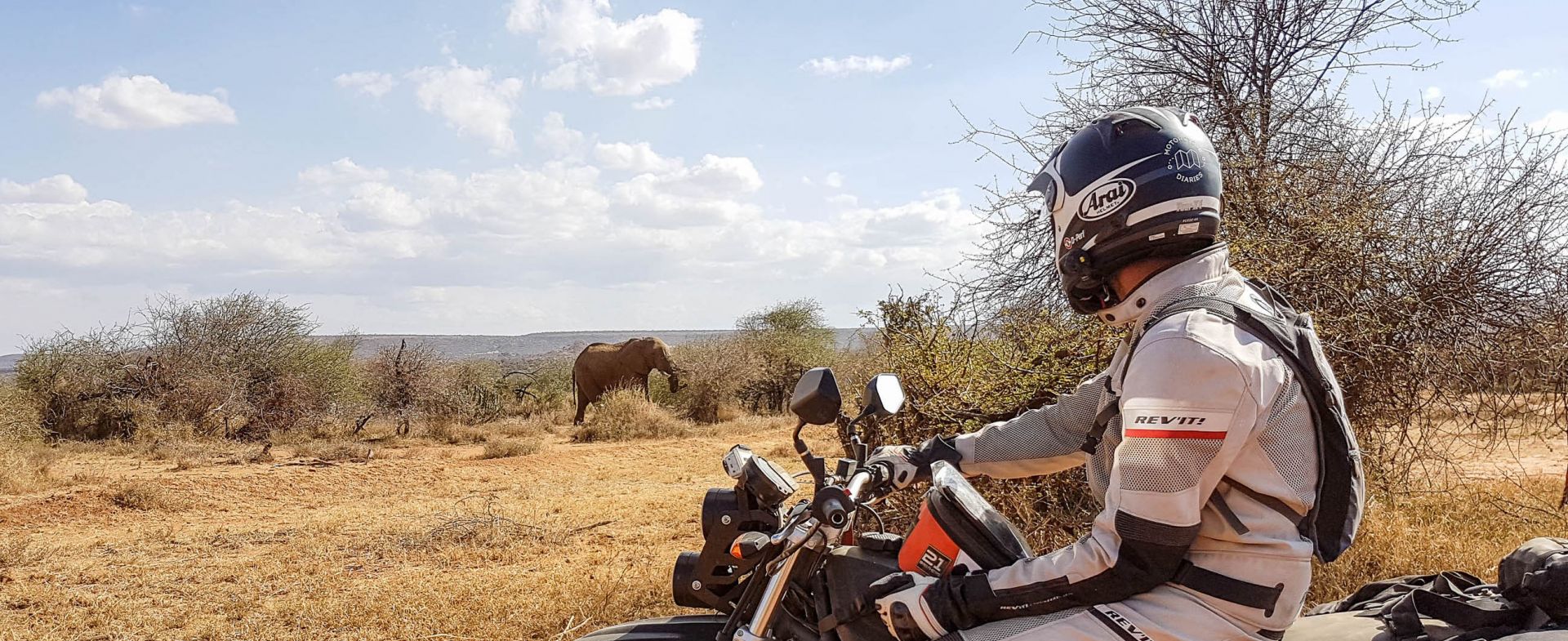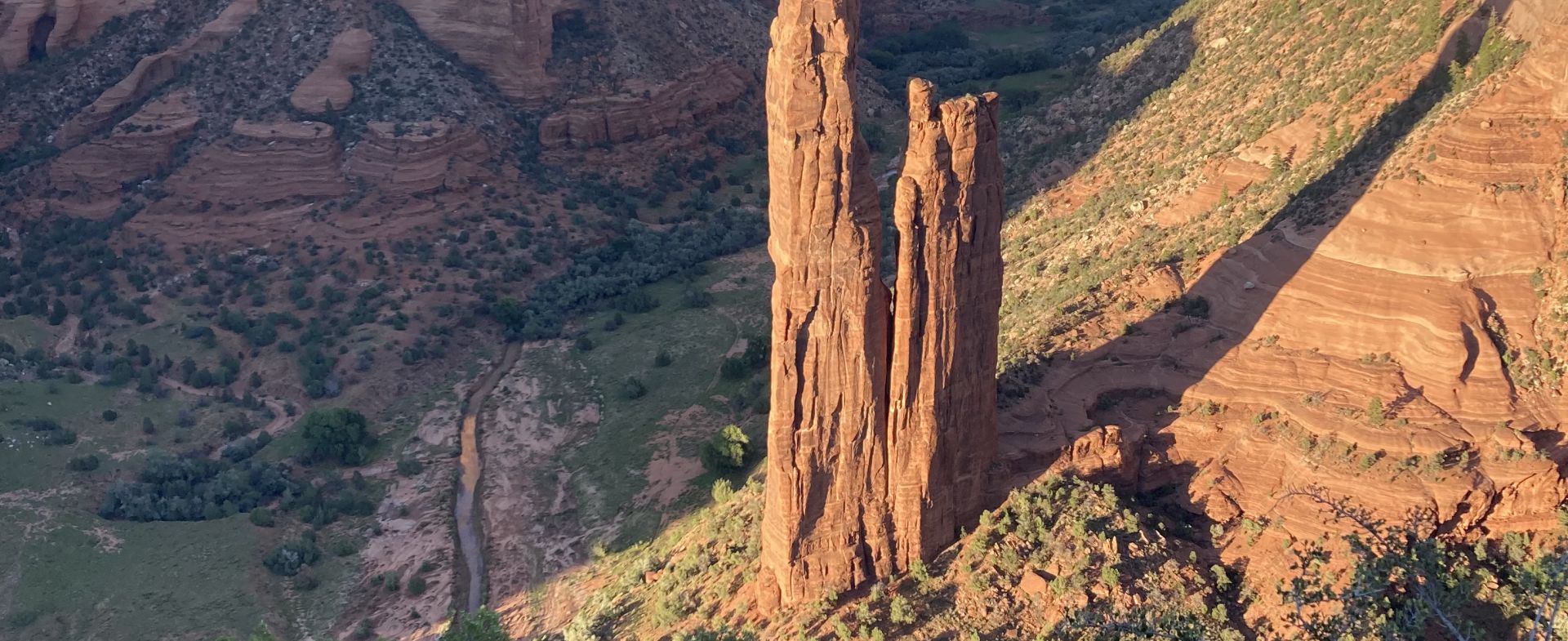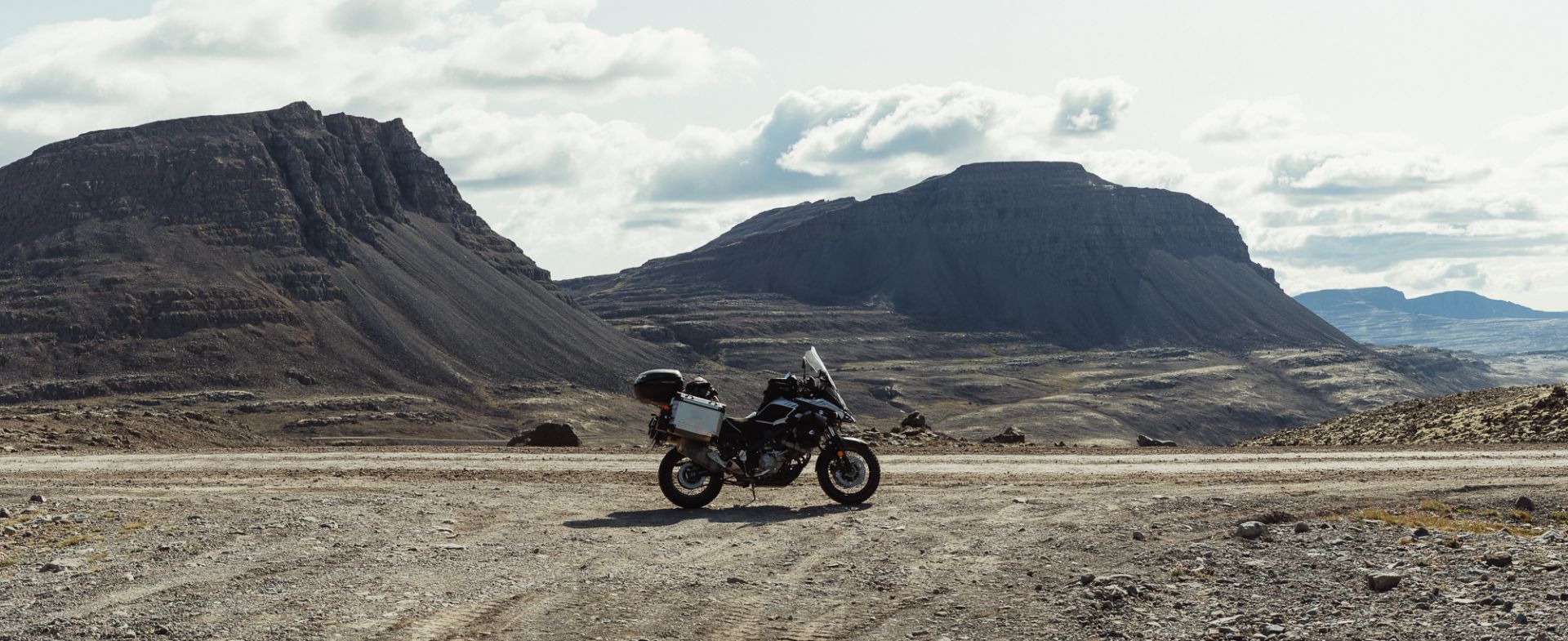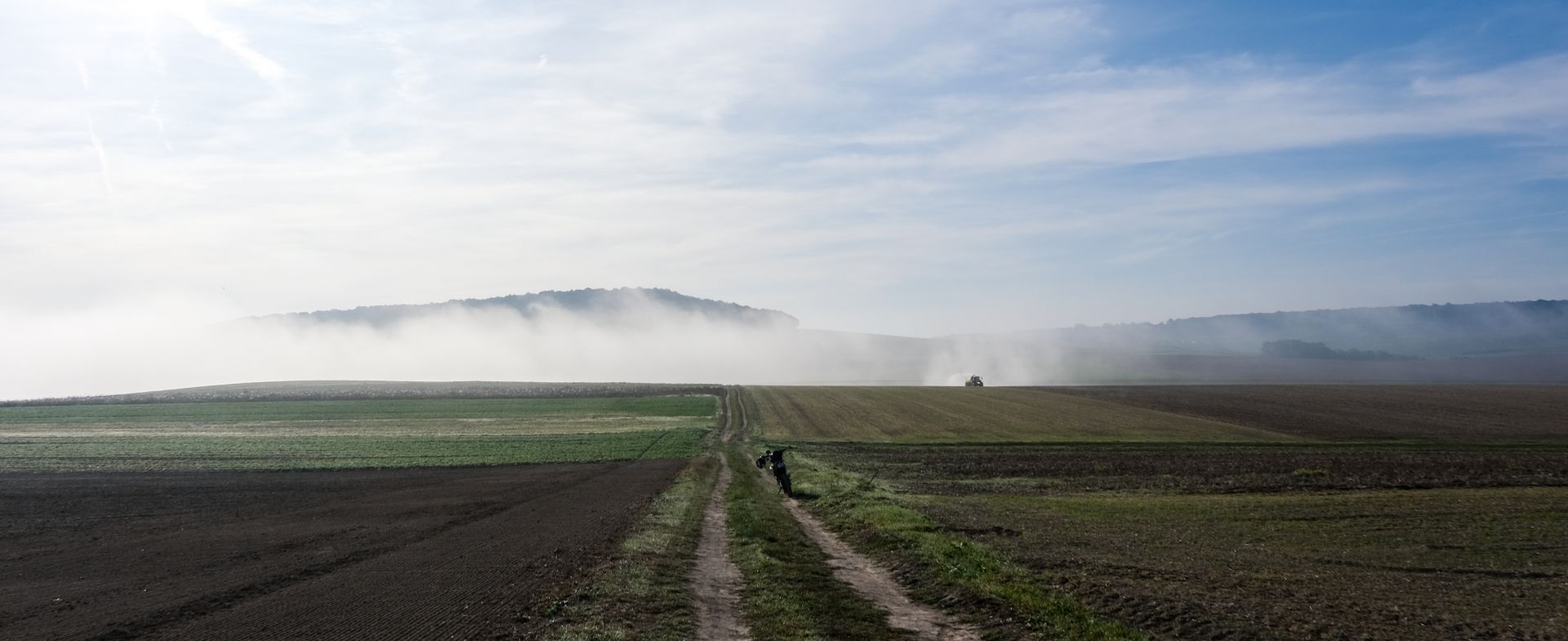Wemotobike: Riding in Kenya
Motorcycle Diaries
Detlef and Marleen head to Kenya to greet Kibo factory workers, and meet the Kibo motorcycle itself. This will be their ride for the 15,000km long adventure they're planning in 2017. Follow their journey at www.wemotobike.com or join them on the road!
Bye Bye Holland, Jambo (hello) Kibo!
It was so strange leaving the Netherlands! Compared to our previous travels the whole thing felt so much more momentous. We sold our car, moved out of our house, organised a farewell party, packed and unpacked our bags twice, left our cat with total strangers and said goodbye to family and friends. Honestly, we were relieved to finally get on the plane to Nairobi. At that moment, flying 30,000 feet above the ground, there was nothing we could prepare for any more.
In Nairobi we stayed at Jungle Junction – JJ’s. It’s a typical “overlanders” place where many travellers with all sorts of vehicles stay. It was a good call, because these other travellers are full of wisdom and have great stories to tell. After a day's rest, it was time for our first trip to the assembly plant. This is the factory where manufactured parts are assembled into a finished product: the Kibo motorcycle!
In Kenya the name for motorcycle taxi is bodaboda. And two bodaboda riders were our transport to the factory: Alvine and Evans, both riding Kibo bikes and working with Savvy Riders. Savvy Riders – good name, eh? It's a social enterprise that aims to professionalise the motorcycle taxi industry. All taxi riders have sufficient training and are equipped with certified helmets, including one for the passenger as well. With these tools – training and equipment – Savvy Riders wants to set an example in order to change the motorcycle taxi industry as a whole.
When we arrived at the Kibo assembly plant we were welcomed by Grace Mwari. She’s in charge of safety and marketing at Kibo, and loves to ride off-road. She introduced us to the rest of the team and gave us a tour through the assembly plant. We were able to see how the Kibo is assembled from 297 pieces into one finished motorcycle. It's like the bike is a very, very complicated IKEA product.
The next few days at the assembly plant were about getting to know the bike inside out. Samuel, chief mechanic at Kibo, explained to us all about the bike and how to maintain it. We also got to practise skills like fixing punctures, adjusting the chain, solving electrical issues, and so on.
Kenyan Road Trip
The practical training didn't just stop at maintenance. Grace took us for a week-long ride through Kenya to get used to the bikes, the roads and the traffic. She guided us over some beautiful dirt roads all the way up to Lake Navascha. After two hours of riding we got our first puncture – a nail in Grace's rear tyre. Lucky that we'd covered this eventuality back at the factory! A camp ground near the lake was our stop for the night. What we hadn't expected to see were the hippos, who came out of the water as the sun went down to keep us awake with their noises.
The great thing about travelling is that life is simple. You focus on taking care of each other, and taking care of the bikes: putting gas in the tank, checking the oil, the tyres, the chain, the bolts... The list goes on! After a couple of days on the road we were getting into a routine: pitch the tent, cook, filter water for the night and day ahead. Sometimes we camped very near lakes. These were a mixed blessing: once we found a crocodile swimming in front of our tent!
We visited some national parks full of animals, but we both agree that it's so much better to ride outside the parks and stumble across wildlife simply crossing the road. It feels more wild and it's more unexpected, instead of just being one of the many safari tourists with big zoom cameras.
On one of the campsites we were a bit unlucky. Returning from a grocery trip, we found a branch from a tree had launched itself into our new tent, ripping a gaping hole in the fabric. Those pesky monkeys in the tree above must have broken it off. A liberal smattering of duct tape later and we'd bodged a fix.
This is also part of the travelling experience. Things break and you have to solve the problem on the fly. Because of the conditions in Africa everything wears more quickly – that's why we need to take extra care of our gear. If you're ever in this situation, try to prevent problems with good preparation and regular maintenance checks.
Next Stop, Colombia
Tomorrow we will arrive in Colombia. There we hope to find two bikes to make the trip to the southern part of South America. The most ideal situation for us would be to find two similar 250cc off-road bikes. After riding around on the Kibos, we still want to go for light-weight bikes. However, more power might mean we are able to reach higher altitudes. So our wish is to obtain some Japanese bikes for this next trip as these brands have the reputation of being the most reliable, and spare parts can be found anywhere.
A good friend of ours will be waiting for us in at the Monteria regional airport. Four years ago he left the Netherlands to follow his dream and start a life in South America. He is willing to help us get bikes, he speaks the language and has knowledge of the paperwork. His help is going to be invaluable!














